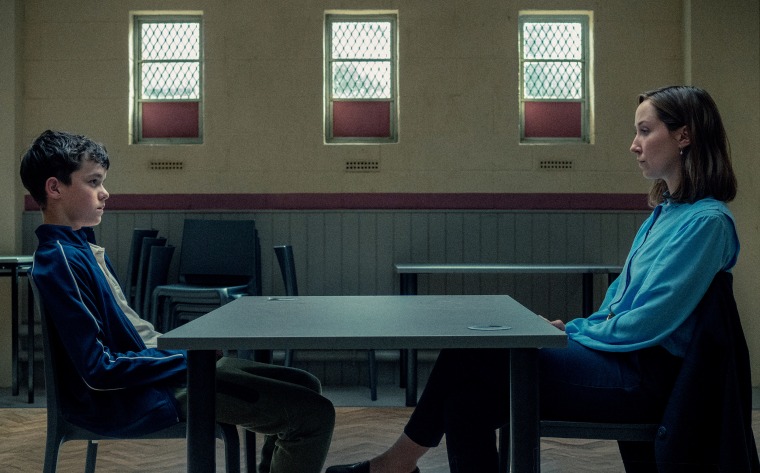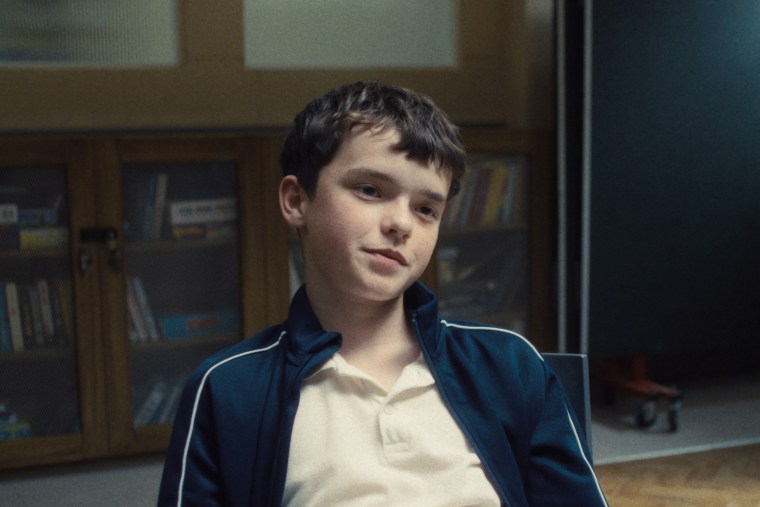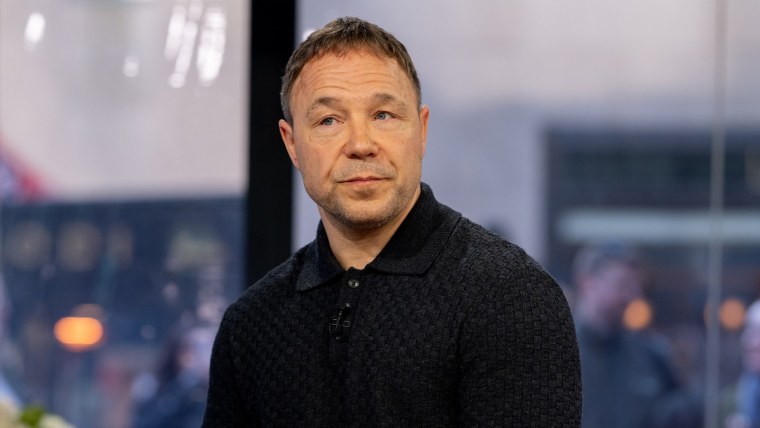Warning: This article contains spoilers about the show “Adolescence.”
Netflix’s newest hit show, “Adolescence,” wastes no time revealing to viewers that the 13-year-old boy arrested in its dramatic opening did in fact stab his classmate to death.
What proves to be far more complicated are the efforts by the adults in his life to understand why he did it, a mystery that forces them to confront the origins of a teenage boy’s tangled feelings about women.
Within a week of its debut, “Adolescence” became Netflix’s top-charting TV show, with critics and viewers lauding it as a critique on social media-boosted toxic masculinity and its role in the teenage experience. It’s one of the first scripted projects to confront the rising cultural influence of the “manosphere,” a network of online spaces that promote rigid notions of masculinity and espouse misogynistic stereotypes about women.
The story centers on Jamie (played by Owen Cooper), whose murder of his classmate Katie sends shockwaves through their English suburb. Each episode is shot in one continuous take and focuses on a different aspect of the fallout.
Series co-creator and co-writer Stephen Graham, who also plays Jamie’s dad, Eddie, said the goal was to “engage people in different questions.”
“Questions like, ‘What’s going on within our teenage boys?’” he told Netflix’s publication Tudum.
“In our heads, Jamie did do it,” co-writer and co-creator Jack Thorne told NBC News. “What we set out to do was not tell a whodunnit, but a whydunnit. We wanted to get inside Jamie, and we wanted to present this complicated portrait. And by establishing his guilt at the end of episode 1, that gave us longer to do that.”
Over four episodes, “Adolescence” explores themes of gender, misogyny, violence and extremism, and how the “manosphere” can influence online and offline behaviors, particularly in young men. Often in these online spaces, boys and men share messages around “alpha male” and “incel” culture.
The show offers a harrowing look at how young boys can be particularly vulnerable to this kind of messaging.
Bernadette Johnston, founder of Safer Lives Online, a nonprofit focused on combating online hate and extremism, said she appreciates that there is no clear villain arc that sent Jamie on a path toward murderous aggression.
“You can see that he’s got a lot more going on than just consuming some misogynistic content online. There’s potential male rage issues. There’s some narcissism there,” said Johnston, whose research focuses on misogynistic extremism. “But then also he’s possibly just behaving like a normal teenager as well, because what teenager isn’t slightly narcissistic and thinks the world revolves around them? So I think that’s what it does really well.”

The show also directly points to one real-life influencer. In the second episode, investigators learn Jamie could have been influenced by the preachings of Andrew Tate, a self-proclaimed misogynist with millions of social media followers.
Tate is among the most high-profile personalities in the “manosphere,” thanks in part to the criminal allegations he and his brother, Tristan Tate, face in Romania. Authorities there have charged them with rape and human trafficking. They have denied any wrongdoing.
Tate has not publicly commented on the show.
For some who work with young people, the show has become an opportunity to connect with parents and educators. Thomas Michael, who works at a British secondary school in a role that ensures the safety and well-being of children, posted on X in an effort to use the show as a chance to teach adults about the manosphere.
He said in an interview that the show should serve as a wake-up call, noting that it’s easy for parents to be unaware of what their children consume online.
“If you’ve got children, they’re gonna know a lot more than you,” said Michael, who has led workshops explaining the manosphere to parents and school staff. “And whether they’re accessing it, whether they’ve been taken in by it, it doesn’t matter. They’re gonna be aware of it. So talk to them about it, be open about it. The main thing is educating yourself and knowing what to look out for.”
While the show offers an unvarnished look at some of the internet’s most toxic corners, it also deals with masculine fragility.

Thorne said that in researching the manosphere for the show, he was shocked to realize how easily his own teenage self could have been drawn toward “incel” culture. The term, short for involuntary celibacy, is defined as “heterosexual men who blame women and society for their lack of romantic success” by the Anti-Defamation League.
"The disturbing sort of thing I found was that I understood the attraction of it, and I could particularly put myself in Jamie's shoes," Thorne said. "I could go to a place where, if I heard 80% of women are attracted to 20% of men, that this world is female-centered and that these women need to be manipulated. ... I was shocked that I would understand that and that the logic was as compelling as it was."
This topic is broached in the third episode, when Jamie is pressed by a psychologist about his views on masculinity. He oscillates between earnestness and explosive rage, and by the end of the chilling exchange it becomes clear that his views are fueled by his belief that he’s “ugly” and unattractive to girls.
Thorne said he hopes the show will generate conversations on the sofa, in classrooms, perhaps even in legislative bodies.
“How do we help these kids? How do we help these boys? How do we stop boys harming girls?” Thorne said. “Those conversations, it takes all of us to have them. And maybe this show asks the question, and maybe then everyone can take these questions and try and find a collective answer.”

